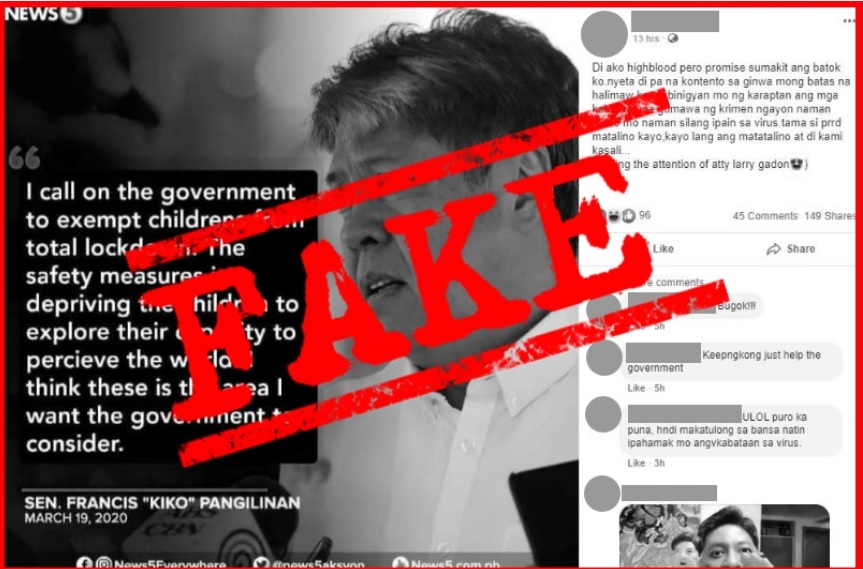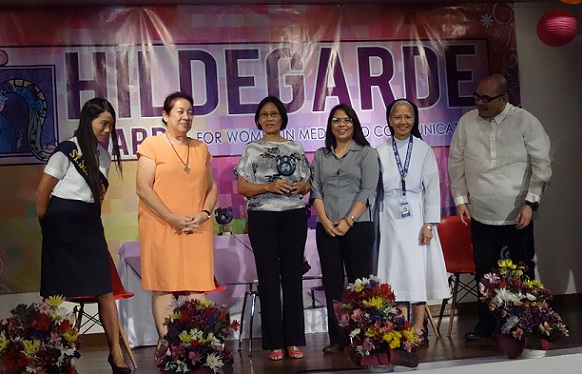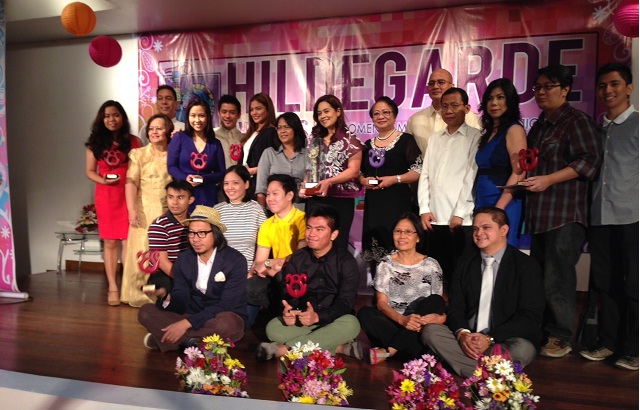
One of the attributes of Facebook (now called Meta) that attracted many to the platform, which is now the biggest in the universe (with 2.89 billion users), is anonymity.
One can be Maria even if she is Juana, or be a 35-year-old engineer from China even if he is a 25-year-old writer from the Philippines.
Officially, Facebook has a real-name policy, which requires users to “provide the name they use in real life.” In practice, however, those who are creative can go around that rule and hide their real identity.
Anonymity is not evil. It can be used for something good. However, as in all things in this world, malevolent minds are using it to do vicious acts while escaping accountability.
That has been the focus in the series of public hearings conducted by the Senate Committee on Constitutional Amendments and Revision of Codes, chaired by Francis Pangilinan: “to conduct a review, in aid of legislation, of the country’s existing criminal laws to consider the rise of social media platforms and the rapid advancement of technology.”
Pangilinan and Senate Minority Floor Leader Franklin Drilon shared their experience of having been subjected to “defamatory” posts on social media.
Drilon said there are existing legal remedies that the defamed can avail of, but they have to know the identities of the defamers. He wants to compel platforms to reveal the identity of the owners of the social media accounts that carry vicious posts.
“We are not asking you to sanction them. We will ask the court to make them accountable. But we have to know their identity to bring them to court, “Drilon said.
There was no commitment from Facebook representatives at the hearings. All they could say was, they have cooperated with Philippine authorities in a number of cases, especially those involving the exploitation of children.
During the second hearing last Dec. 15, retired Supreme Court justice Antonio T. Carpio made a number suggestions which should send chills down the spine not only of those who are fond of posting untruthful and defamatory posts but also of the platforms.
He said that unlike in the United States where online platforms can take refuge under the safe harbor clause in Section 230 of the Communications Decency Act of 1996 of the United States not to be accountable for the libelous comments of their users, in the Philippines, they can be held liable for libelous comments of their users, just like in any print, TV or radio media.
Online platforms are publishers, Carpio said. Thus, public officials or public figures libeled online by fake or fictitious persons can sue the online platform.
There is, however, the burden of proving malice for the libel charge to prosper.
“There is a gap between the existing libel law and what should be the ideal justice in case of online libel. The use of fake or fictitious names in online platforms to libel a person is per se proof of malice, and this should be written in the law,” Carpio said, and went on to propose “that existing law should be amended so that malice is presumed on the part of the online publishers if they allow fake or fictitious users to post on their platforms libelous comments against public officials or public figures.”
He continued: “We are all for freedom of expression, but we are also for the truth and for a level playing field. Anyone who imputes in social media a crime or derogatory act on another person must disclose his real identity to allow the libeled person a legal remedy against his or her defamer. The defamer must not be allowed to hide behind a fake or fictitious name. The burden must be placed on the online platform publishers to require those who post comments on their platforms to disclose their real identities.
Carpio noted that many posters with dubious aliases have been traced to China. He proposed further: “The online publishers should also secure the country of residence and addresses of those who post comments on their platforms. The country of residence and addresses of those who post comments can be given to the libeled person upon request to allow him or her to exercise his or her legal remedy.”
Another resource person, Jonathan Corpus Ong, co-author of “Architects of Networked Disinformation,” a definitive study on fake news production in the Philippines, sounded a note of caution on “legislation that will undermine online anonymity and privacy of users.”
He cited progressive movements such as #MeToo and #BLM which, he said, “were amplified by pseudo-anonymous accounts.”
“Unmasking low level ‘trolls’ allows the real masterminds to get away: the top-level political marketers and their political clients,” he said.
The disinformation expert added, “Overbroad legal frameworks to catch ‘cybercrime’ or ‘fake news’ vaguely defined have dealt catastrophic harms to vulnerable communities.”
Ong’s concern is reinforced by the recent decision of the Supreme Court upholding the repugnant Anti-Terror Act.
He suggested that instead of top-down legislation, the lawmakers must “provide infrastructure and funding to support bottom-up interventions done by journalists, civil society and academics who have already been doing the work of monitoring disinformation and engaging platforms in a thoughtful and responsible way.”
He said other approaches can include “funding research, creating media literacy initiatives and developing interventions that prebunk harmful speech and misleading narratives such as historical revisionism.”
It’s good that the committee is listening to many voices. What we should guard against in our search for a solution to the problem of a toxic social media is the possibility of coming up with a medicine that is worse than the disease.
This column appeared also in:
ABS-CBN online
https://news.abs-cbn.com/blogs/opinions/12/20/21/the-danger-of-eliminating-anonymity-in-social-media
Malaya Business Insight
https://malayaph.com/news_opinion/the-danger-of-eliminating-anonymity-in-social-media/
VERA Files
https://verafiles.org/articles/danger-eliminating-anonymity-social-media



